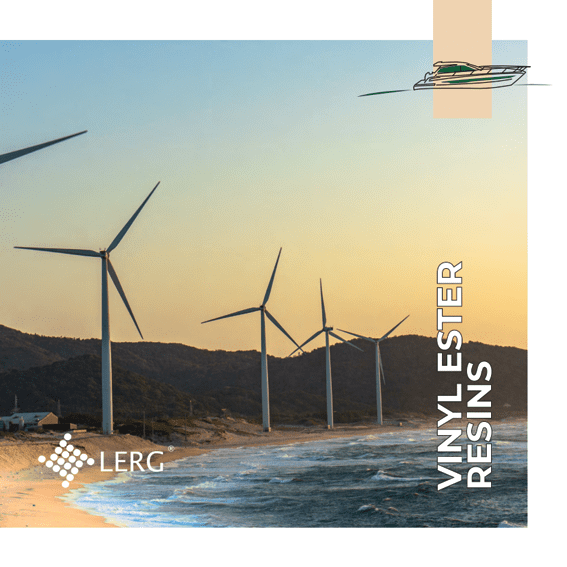Vinyl ester resins are made in a reaction of epoxy resin and unsaturated monocarboxylic acid, followed with dissolution in styrene or other acrylic reactive monomer. The processing is similar to that of polyester resins; these products are recommended for use in the manufacture of materials exposed to adverse environmental conditions, i.e. high temperature, corrosive agents, stresses, and contact with water.
Vinyl ester resins are characterized by:
• high resistance to a range of chemical compounds, comparable to that of epoxy resins,
• their use enables the production of flexible and highly thermally resistant composites,
• excellent adhesion to glass, carbon and aramid fibres,
• excellent resistance to osmosis and hydrolysis,
• good adhesion to elements made of polyester and epoxy resins.
Key application industries:
• construction – in the production of tanks, pipes, scrubbers, chimneys, chemical plant components, wind turbines, CIPP (cured-in-place),
• transport – in the production of railway car parts, truck panels, vehicle bodies, yachts,
• in the construction of swimming pools.


